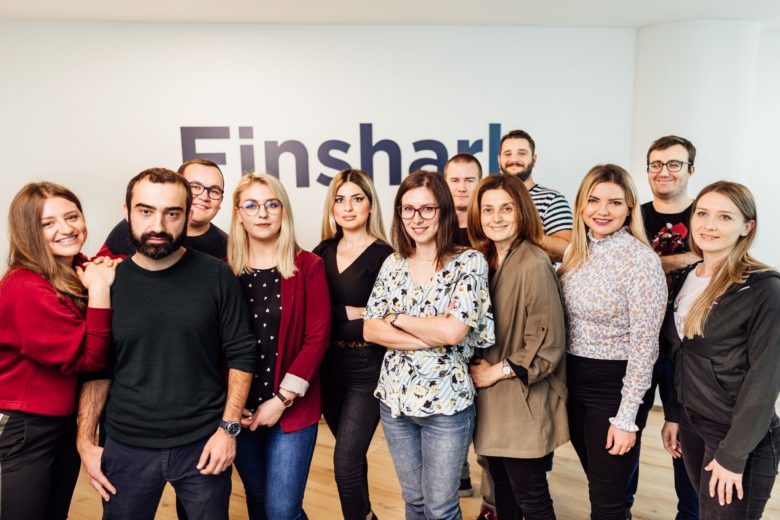Meet Finshark: The Bosnian-founded startup pioneering Europe’s open banking industry

Not so long ago, banks operating in the EU used to be the sole, undisputed owners of their customers’ account data. Now, open banking rules allow customers to get better deals if they consent to having their account data shared by their bank with other companies, which, in turn, can use this data to design and offer their own financial products to the account holders.
What is open banking?
Any company can now benefit from real-time financial data provided by the banks, and translate it into better processes and brand new services. This innovation in the EU payment market has made bank account data a valuable commodity. The main risk within the open banking space concerns the handling of customer consent, given that any unauthorized access to the process could have huge impact on the economy and integrity of any individual end-user. This risk is managed by strict guidelines on everything – from internal and external security to transaction monitoring.
This revolutionary approach to financial services is contained in the EU Directive 2015/2366 (Payment Service Directive 2 – PSD 2) that seeks to open up payment markets to new entrants, leading to more competition, greater choice, and better prices for consumers. It has been in force since early 2016, and member states had to incorporate it into their national legislation by early 2018.
+++Open Banking (r)evolution in Central and Eastern Europe: Insights, Trends and Players+++
Jumping on the opportunity
Two Bosnians living in Sweden, Adnan Šporo and Alen Hasičević, who have a long history of developing payment solutions for the Scandinavian market, jumped at the opportunity to seize a share of this new market. In late 2018, they founded the startup Finshark, an open banking infrastructure platform.
”In 2016, we came across the ”open banking” concept and the newly-passed Second Payment Service Directive (PSD2) which obliges every single bank operating in the EU to share their account data by building and launching dedicated Application Program Interfaces (APIs), software intermediaries that allow two applications to talk to each other – with certain businesses thoroughly scrutinized and authorized by the relevant financial authorities. Although it was evident that the open banking concept promised huge opportunities within the payment sector, we realized that technical and regulatory complexity would exclude most European businesses from having any benefits at all. For this reason, we decided to build a platform which would reduce the complexity and make open banking accessible to all European businesses,” said Adnan Šporo.
Having already founded and exited several companies in the past, for Adnan Šporo attracting investors for Finshark wasn’t an issue. ”What proved difficult was actually explaining the open banking concept that early,” he explained.
Today, Finshark is owned by its founders, several investors, and employees. It has evolved into an open banking platform with a layer of data and payment products that are currently used in the Scandinavian countries, and the plan, according to Adnan Šporo, is to expand operation to Spain, Italy, France, Germany, and the Netherlands in Q3 2021.
Competition is strong
Finshark operates in a competitive environment, which, Adnan Šporo believes, is a good thing: ”The main idea with PSD2 is to enable innovation and bring about more diversity in the financial sector. The road to this innovation is paved with challenges which can be overcome by picking the right financial partner.”
At the time of the establishment of Finshark, several competing platforms were also being set up.
”Some of the bigger ones, such as Tink and Plaid, were already in the commercialization phase due to the fact that they started much earlier as consumer-facing products. Both of these companies are still the leaders in the field of open banking infrastructure and products. There are already some mergers and acquisitions being done, with Tink being the leader in that field as well,” said Adnan Šporo.
Looking into the future of open banking
”However,” he explained, ”we need to look beyond PSD2 and what is possible today. In Scandinavia, for example, the majority of financial enablers (such as Bank ID used for strong customer authentication) are pushing the limit of what is possible almost on a daily basis. It is plausible that we will see a few dominant players on the financial market in the future, but that will require much more sophisticated financial products from whoever wants to take the dominant position on the market. Currently, many are focusing on competing with legacy solutions with new and improved open banking technology. We believe that a better way forward is to fully replace the legacy solutions within next-gen products based not only on open banking technology but even more on the financial enablers which consumers know and trust.”
Recipe for success

For this reason, in late 2018, Adnan Šporo and Alen Hasičević founded HiQ Development, a sister company in Sarajevo, Bosnia and Herzegovina. ”In order to develop the next generation of financial products, you need talented people to work with you. The pool of talented people is especially big in Bosnia and Herzegovina, and since both Alen and I were born there, setting up a company in BiH and not some other neighboring country was a natural choice. However, the main reason for choosing Bosnia is the access to a pool of highly talented people”, said Adnan Šporo.
Tarik Jažić, People Operations Manager at HiQ Development, explained that “a connection between our people in Scandinavia and the domestic workforce in BiH proved to be a recipe for business success.” ”We have provided a professional and young Bosnian-Herzegovinian workforce capable of following innovations and market demands because this connection with the diaspora allows them easier access not only to the international market, but also to new trends and innovations.”
Slowly embracing the challenge
Adnan Šporo believes that complex political and financial reality in many countries in the Western Balkans, including Bosnia and Herzegovina, is hampering innovation and that, unfortunately, there are no signs of any adaptation to EU regulations in the open banking sector just yet. However, he stressed that there is room for optimism because banks and other financial institutions may lead the way themselves simply because banks have to stay competitive and keep up with what is happening in the rest of Europe.
”While PSD2 placed a huge burden on banks operating in the EU, and many were initially reluctant to fully implement the regulation within their systems, this has changed over time and most banks have now fully embraced the open banking concept. The shift has happened gradually when more and more banks realized that even though they must open up their data to potential competition, they are also able to consume data from other sources that were previously closed to them. Some banks are even going as far as opening up systems – through premium APIs – that are not even required by PSD2,” explained Adnan Šporo.
HiQ Development was also recognized by USAID which financially supported the company through its “Diaspora Invest” project. This support was used by HiQ Development to purchase IT equipment that helped set the ground for increasing the number of employees. Today, HiQ Development has 16 employees.
”We are convinced that 2021 will bring new growth and new opportunities. We also have plans for new projects, but it’s too early to talk about them”, said Adnan Šporo.




























